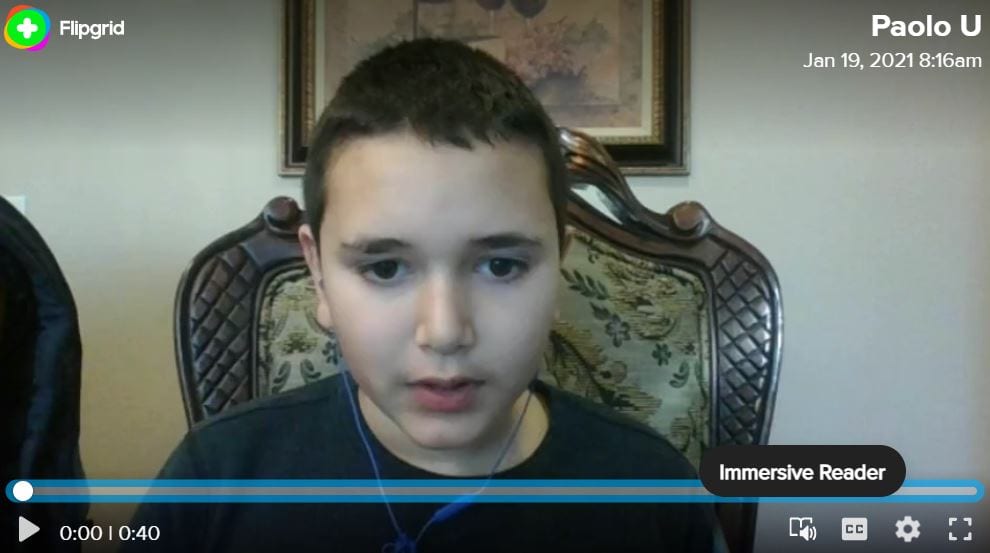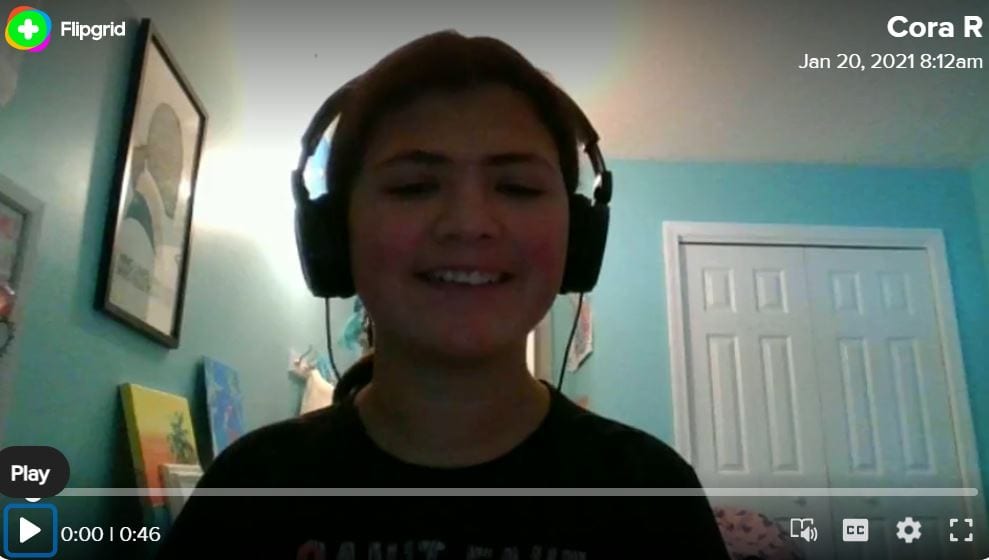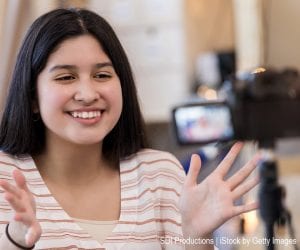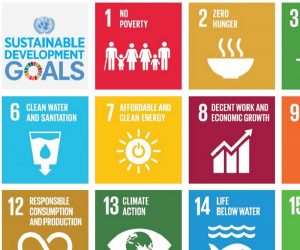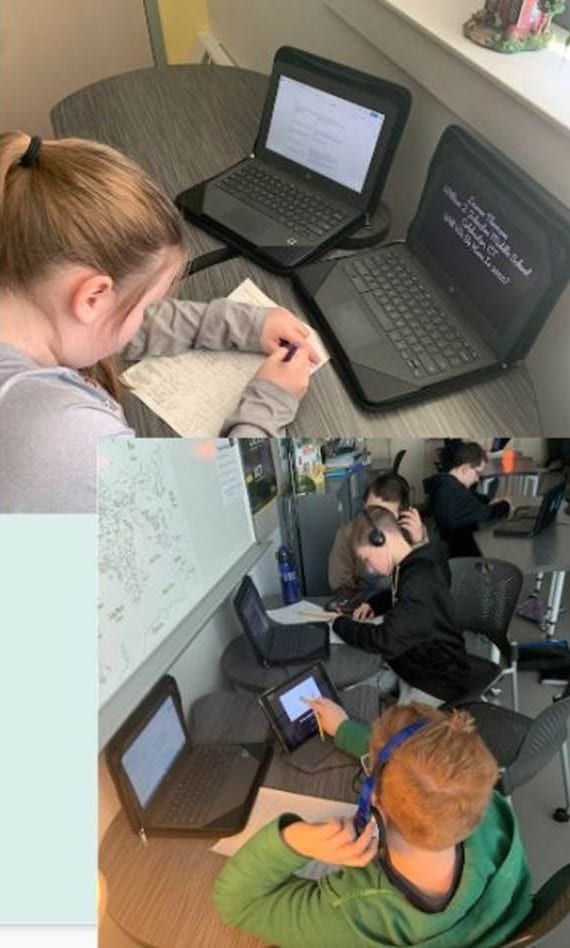 Laura Krenicki has been using the World of 8 Billion (previously the World of 7 Billion) student video contest in her classroom for five years as an engaging way to teach global connections and meet her state’s content standards. She even presented a webinar on the contest’s global connections for the International Society for Technology in Education (ISTE) conference! In this blog, you’ll hear exactly how she uses the contest and what has made it such a successful classroom project for her 6th graders.
Laura Krenicki has been using the World of 8 Billion (previously the World of 7 Billion) student video contest in her classroom for five years as an engaging way to teach global connections and meet her state’s content standards. She even presented a webinar on the contest’s global connections for the International Society for Technology in Education (ISTE) conference! In this blog, you’ll hear exactly how she uses the contest and what has made it such a successful classroom project for her 6th graders.
The contest challenges middle and high school students to take a deep dive into a global issue and produce a 60-second video that explains the topic, its relation to human population growth, and offers one idea for a sustainable solution. Laura has found that through discussion and research on a topic of their choice, students’ global perspectives are expanded and they’re inspired to take action.
Video Contest Teaches SDGs while Meeting Content Standards
Laura uses the World of 8 Billion video contest to meet the Connecticut Social Studies frameworks that look at global and world cultures. In her classroom, she begins by sharing the Sustainable Development Goals and then has students take a deeper dive by exploring the relevancy of the SDGs in different parts of the world. Right off the bat, Laura aims to develop students’ global competencies by ensuring they are able to recognize different perspectives.
Laura’s students individually pick the SDG they think is the most important and learn more about their chosen goal. Then, students apply what they’ve learned by exploring ways to practically apply the goals in their everyday lives through individual actions, advocacy, and spreading awareness.
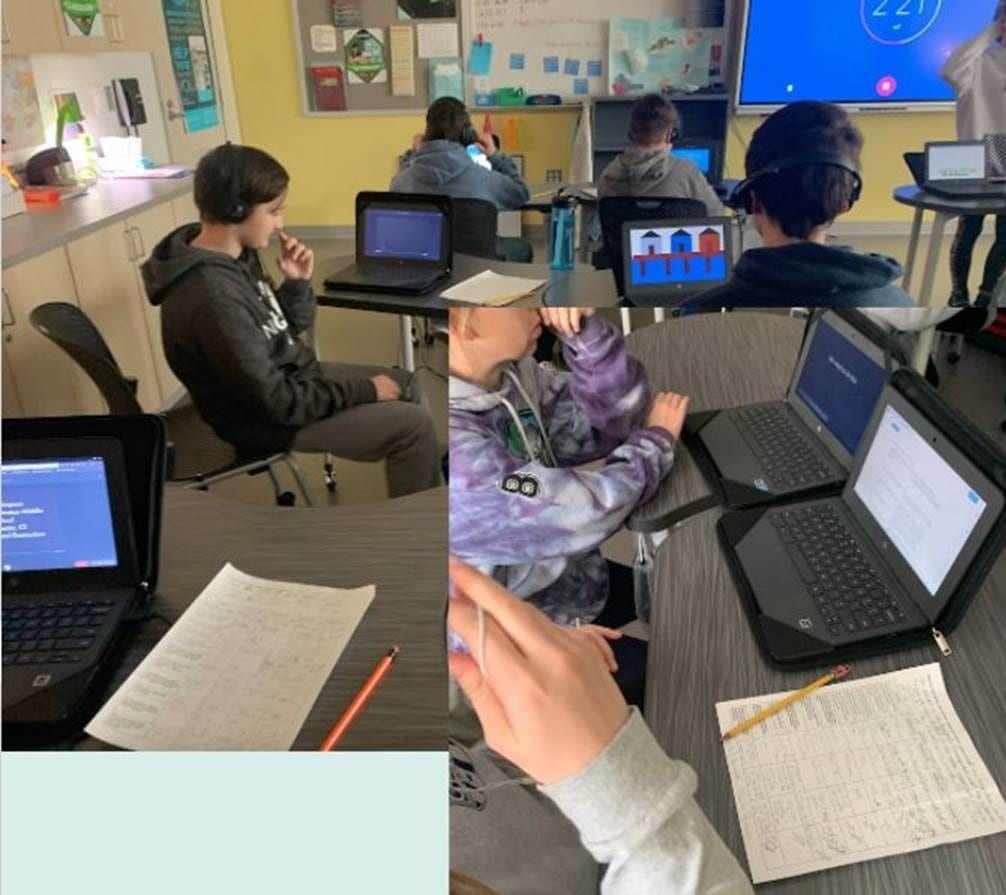
It is in this application phase that the contest really shines. Through the development of their videos, students connect their knowledge of the SDGs to the global issue they’ve chosen to research in the World of 8 Billion contest. (Each year, the contest centers around three global issues and this year they are: Promoting Environmental Justice, Strengthening Global Health, and Re-Imagining Industrial Systems.) The resulting videos are powerful tools for students to advocate for change and spread awareness in their community on an issue they care about. As an added bonus, this experience builds research skills and introduces students to being critical consumers of information found online.
Video Contest Give Students Opportunity to Make Global Connections
Ultimately, the contest functions as a tool in Laura’s class that takes students understanding of global connections and awareness of the SDGs to the next level by allowing students to:
- Recognize perspectives — students see the world through different lenses and various points of view.
- Investigate the world – students expand their knowledge through research and inquiry, rather than just rely on what they already know.
- Generate intercultural communication – students work with peers in other parts of the world, to broaden exposure beyond just knowledge of other cultures.
- Take informed action on global issues – students become inspired to make a difference and once they’re inspired as 6th graders, they have a firm foundation from which to build their research skills.
Student Perspectives on Their World of 8 Billion Videos
We had the pleasure of catching up with some of Laura’s students. Read their comments and watch the videos below to hear about their experiences of learning global connections through the World of 8 Billion contest.
Watch Paulo U. explain how his research related to the Sustainable Development Goals.
Watch Cora R. speak about relating her topic to the Global Goals, and how she felt about the challenge of making her video.
Listen to Tavion B. talk about what he has learned about COVID-19 by doing this project: https://flipgrid.com/s/szqRcJz1yUs7SdQx
Kellen C. says:
“During this video contest, I have experienced challenges, but I’ve also learned how to overcome and persevere. I have grown as a beginning filmmaker, and I have also learned a lot about the world around us. This contest has taught me to keep in step but express myself all at the same time. While making my video I have realized the real importance of this contest, not the reward, but the people that are facing these issues, such as poverty and inequality. We are not doing this contest for our own benefit, but for the people experiencing these barriers in their everyday lives. My topic of redlining connects to many of the Global Goals such as quality education, zero hunger, clean water and sanitation, as well as several other of the Goals. But it is what we will and can do that matters. We can be the change.”
Sai P. says
“I feel that this project has been a great opportunity. I learned how to use many editing skills that I never knew. I also learned many things to be aware of. Our world may die if we don’t complete the global goals. I hope that I can raise awareness about this. Before this experience, I knew our world was in trouble though now I understand how big of an issue this really is. In my opinion this is very important for the world. Many people don’t worry about any of this but in reality this could be life or death. So I feel that this project is more than just some kind of competition. I really hope we can change the world. It doesn’t even matter to me who wins.”
Laura Krenicki is a 6th grade Social Studies teacher at William J. Johnston Middle School in Colchester, Connecticut. To learn more about how Laura incorporates the World of 8 Billion video contest as a project into her classroom watch her 30-minute ISTE Global Collaboration Playground presentation, “The Global Goals & A World of 7 Billion”.



